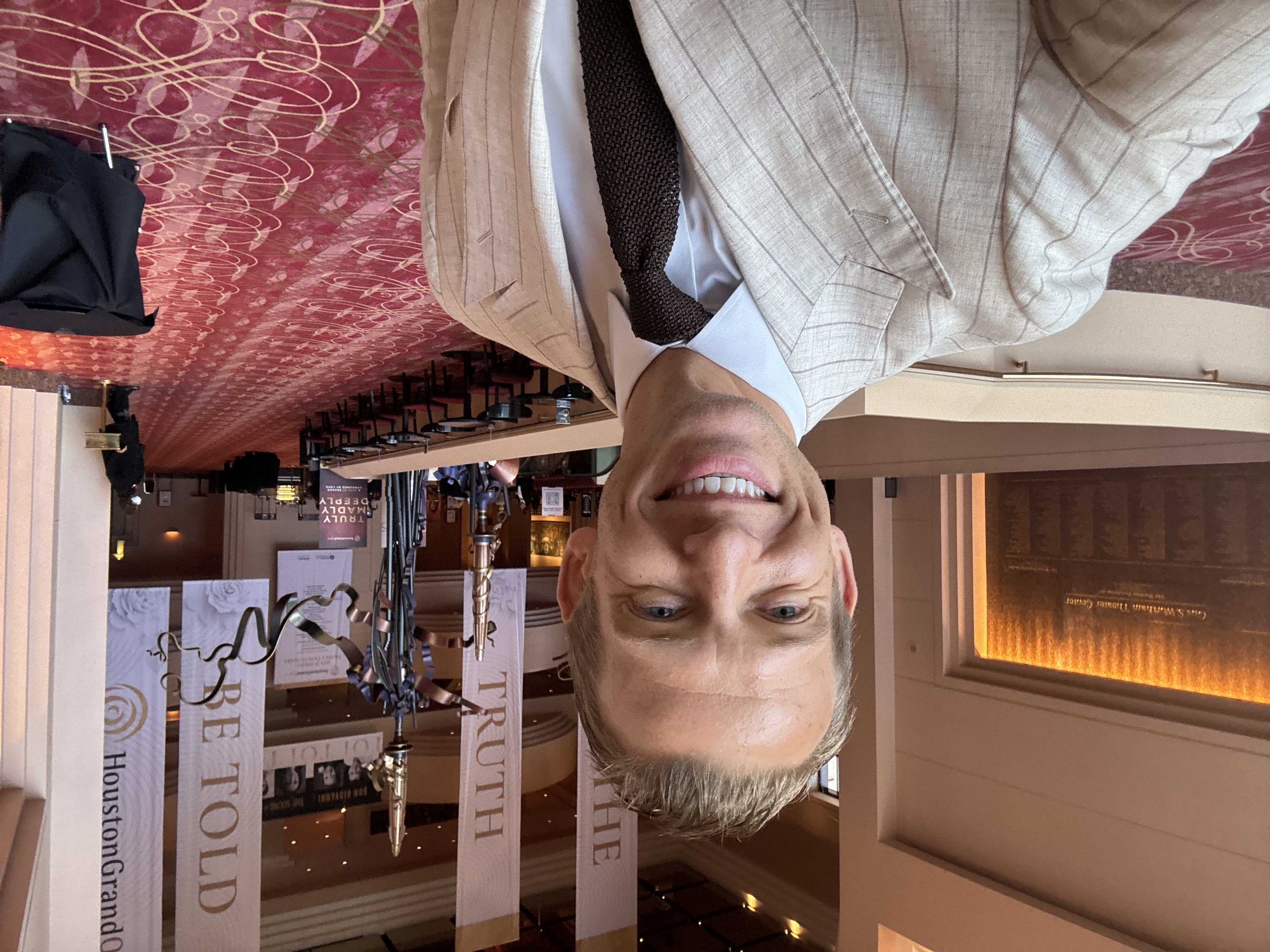HGO Spotlight On: Director of Philanthropy David Krohn
From early on, David Krohn knew he wanted to pursue a career in opera. And that’s exactly what he’s done, if not exactly in the way he once imagined. He’s loved to sing from the time he was a boy in Norfolk, Virginia. As a young man, David pursued a career as an opera singer before discovering something he was equally passionate about: supporting the art form he loves on the fundraising side of the industry. Today he is HGO’s Director of Philanthropy, leading a team that works together to provide opportunities for patrons of the arts to share their love of opera with others. He has now been with the company for 11 years—and he still gets to sing! When he’s not working to make sure all Houstonians have access to world-class art, David shares his own gifts as a cantor at his synagogue, Brith Shalom.
Here's David on his life and career, in his own words:
I found opera when I was in high school. I grew up in the synagogue—my dad was a rabbi—so I sang a lot there. He knew there was a local opera company, Virginia Opera, and when I was 16, he recommended that I audition with them to sing in the chorus of Tosca. I still have the poster up in my office from that opera. I didn’t really know anything about the art form at the time, it was the first one I’d seen. But the people in the chorus were super friendly and cool, and they took me under their wing. I fell in love with it.
I got into Peabody Conservatory in Baltimore for my undergrad in vocal performance, and then I went from there to Juilliard for my master’s. After that, I wound up getting into Seattle Opera’s Young Artists Program, which was their version of the Butler Studio. I was there for a couple of years, and by my second year in the program, I had seen a lot of professional working singers and realized that the traveling, gig-to-gig lifestyle just wasn’t going to work for me.
As a singer, I’d been exposed to donors, performing at different donor functions, dinners, and galas. I found myself enamored with the amazing people who loved this art form enough to invest in it with their own personal resources. I developed close friendships with many of them, and some even became mentors. When it came time to reassess my life as a singer, I realized I wanted to spend my career working closely with them, supporting the art form I loved. I met the director of development at Seattle Opera, who became a real mentor to me. She told me more about fundraising work, and I transitioned into an internship on her team. After that, I landed my first job working in development at Seattle Opera doing corporate partnerships.

Even as a student I’d known about the reputation of HGO. When I was at Juilliard, people getting an audition for HGO was a big deal. Everyone would talk about it, like, oh my God, when is Cecilia going to sing for HGO? Let’s send her good vibes. It was a high-stakes, world-class company in every way, even after I started taking my baby steps into fundraising. I knew that if I was going to learn how to do it, I needed mentors who I could really learn from. So, when I came to Houston, I knew that the team here was just incredible. There was no competition.
I moved out to Houston in 2013, and for the past 11 years, I’ve done just about every job at HGO on the development team. I’ve had a lot of exciting opportunities over the years, whether traveling to Italy with donors or just bringing people to the opera who didn’t know they were opera lovers yet.
There are some donors who love opera, and then there are some donors I’ve worked with over the years who have directly said, David, I will never go to an opera, but I’m going to give you this gift because I believe in the educational work that Community & Learning is doing; or, I want to create this program that helps prepare kids for colleges, like the High School Voice Studio; or, I just want to go to the Opera Ball and have a great party. And that’s fun, too, you know?
I love seeing that look in someone’s eyes when they’re just blown away by what they’re experiencing. They realize that, were it not for their gift, this wouldn’t be happening right now. Their investment in the art form—it affects them at a deep, deep level. It adds meaning to their lives. They've worked for their whole lives, just grinding day in and day out. When they come here, they sit down in a dark theater, they take a breath, the music hits them, and they’re transported somewhere else.
Frankly, when I look at HGO as compared to other opera companies in the nation, there is no company that can hold a candle to where we are. Our fiscal health, our artistic output, the incredible donors that we have, the colleagues I get to work with here—they’re so brilliant. I never want to be the smartest person in the room, which I’m not here because there are awesome people I get to learn from all the time. And I think that more and more people are realizing how amazing this company really is.
For more of HGO Spotlight On Series read Part 6.